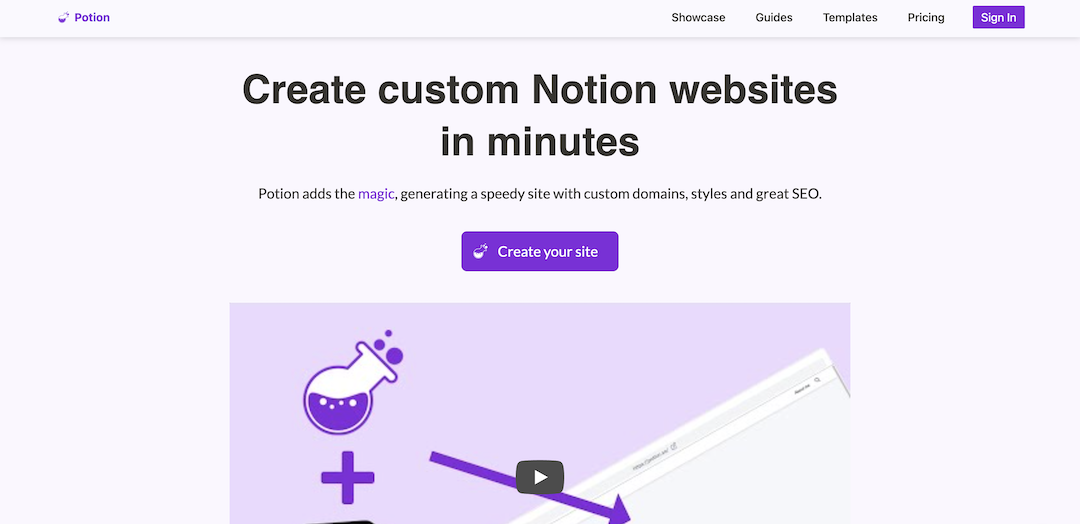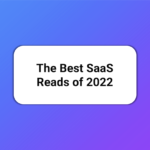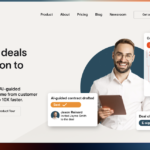Introduction
Potion's growth story
“Build it and they will come.”
The quote should have been, “Build it IN PUBLIC and your customers will follow.”
My take on the startup mantra is not as catchy as the original, but it holds more truth.
Countless founders have taken a product-first approach to launching their SaaS company (I’m personally guilty of this) only to find there is no audience after months of product development.
A more strategic approach is to market your product while you’re building it. You can attract your target audience and invite them onto your journey by using your feature roadmap, small achievements, and lessons learned as content. In doing so, you can convert them from followers, to supporters, and then into raving fans.
This is exactly what Noah Bragg did with Potion. Within two months of launching, Potion gained over 75 paying customers and doubled that number in another five months.
What was the main ingredient for such rapid growth? The answer: Building in public.
In this article, I breakdown the three takeaways I learned from my conversation with Noah.
Let’s dive in!
1) Build on top of an existing ecosystem to amplify your product marketing
About Potion
Potion is a no code site builder that empowers creators and solopreneurs to create custom websites on Notion. Users don’t need to migrate their Notion content onto other site builders like WordPress and WebFlow. Instead, they can build their landing pages, freelancing portfolios, or support articles all within a platform they are familiar with.
The benefits of building on an ecosystem
By building on top of Notion’s ecosystem, Potion leveraged an existing community as an echo chamber to amplify its product marketing.
A key benefit of leading with an ecosystem-based approach is being able to target a pre-existing and established audience base. Notion already had millions of users who were passionately talking about the platform.
Potion didn’t need to scour the web for fragmented pockets of its target customers. Instead, Notion users were already concentrated on a few platforms where hundreds of conversations were taking place every day. Making it easier for Potion to gain traction through word-of-mouth.
In fact, Notion users love nothing more than sharing public pages with each other. On Twitter and Reddit, Notion communities are filled with helpful resources and pre-built pages that are passed amongst each other.

(Image of Reddit thread in the r/Notion sub)
All Potion had to do was enter the conversation.
2) Share your company’s progress to attract a supportive audience base
The "build in public" movement
Over the last few years, a recent trend has emerged on social media where founders publicly talk about their entrepreneurial journey. From feature ideas to milestone achievements, and even lessons learned, founders started sharing their progress on platforms like Twitter.
This movement helped early-stage founders and indie hackers to promote their company without a large marketing budget. Instead of writing long-form blog posts or running paid ads, “building in public” became a mainstream content strategy to attract a following.
This was the main ingredient for Potion’s rapid growth.
How Potion used "building in public" to attract an audience
By building in public, Potion was able to garner a supportive audience base that wanted to follow along the company’s journey.
Potion’s founder, Noah, saw how effective building in public was at attracting creators and entrepreneurs. It was the perfect content-channel-fit for Potion’s target audience.
In fact, Noah’s first “build in public” tweet set the stage for Potion’s rapid growth. Within 24 hours, Noah got over 1,000 new followers who were eager to learn about what he was working on.
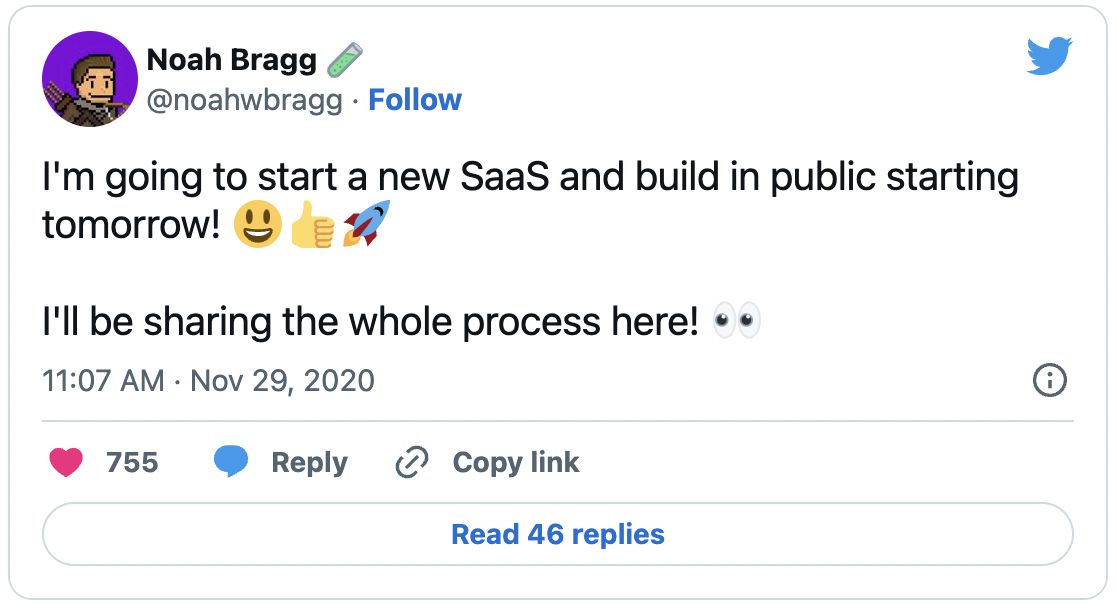
(Potion’s first build in public tweet)
This single tweet established himself as a resource in the community and built anticipation for Noah’s future posts. By building in public, Noah gained new followers who were interested in his mission and wanted to support him on his journey. But more importantly, each tweet built hype and excitement for Potion.
The benefits of launching with an audience base
When it came time to launch, Potion gained over 75 customers within the first two months. Each new customer became a milestone to share with Noah’s followers, further building his credibility and increasing the shareability of his content.
Another benefit of building an engaged audience first is being able to amplify your marketing on other platforms.
After a few months of going live, Noah prepared to launch on Product Hunt. Now having thousands of followers on Twitter, Noah leaned on them to help promote Potion’s product page.
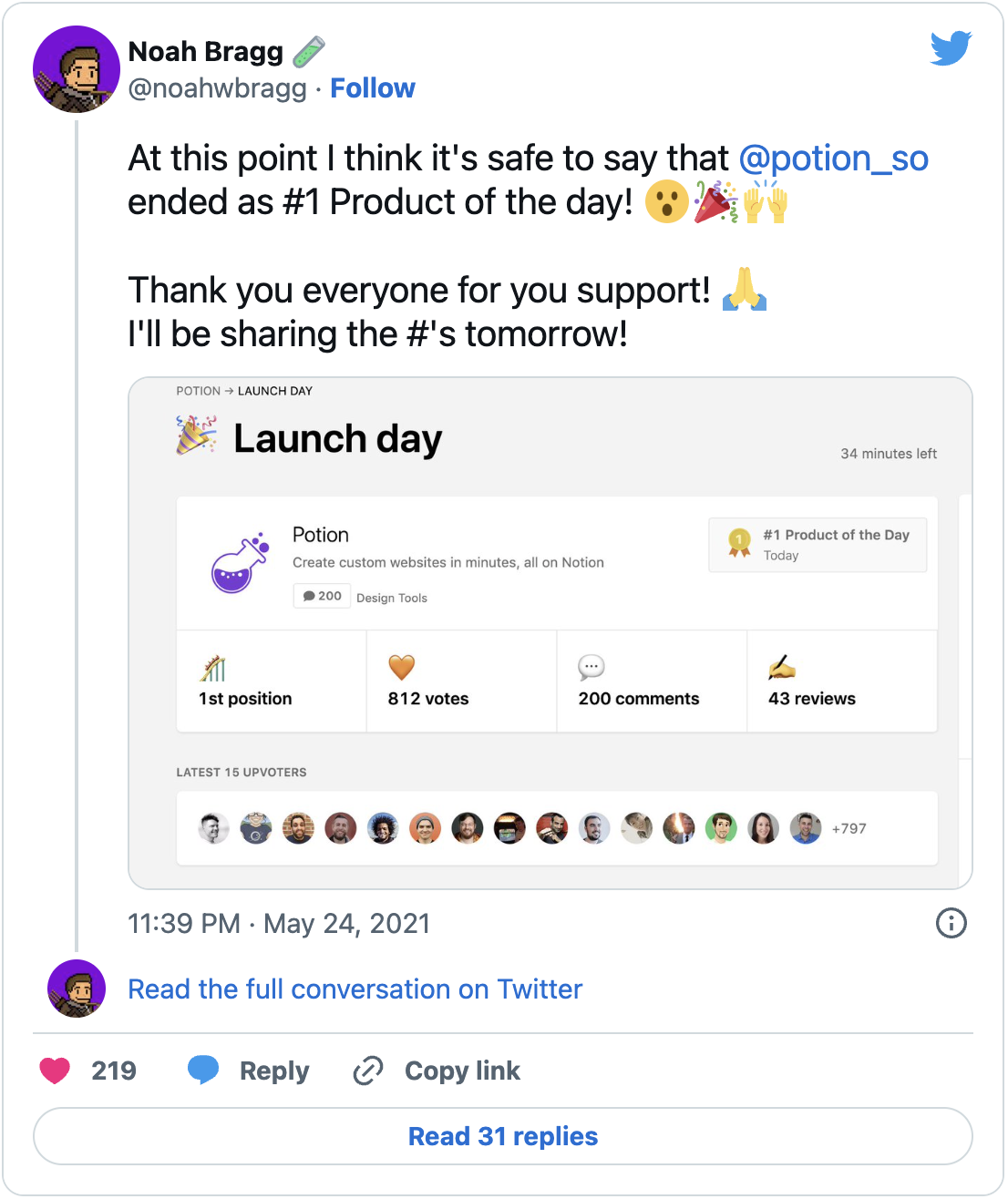
(Noah’s post Product Hunt tweet)
As a result, the company was awarded “First of the Day” and “First of the Week” on Product Hunt. Huge milestones that helped to establish Potion as a leader in the Notion site builder market space.
Today, Potion ranks in the top three results when searching for “notion site builder” on Product Hunt.
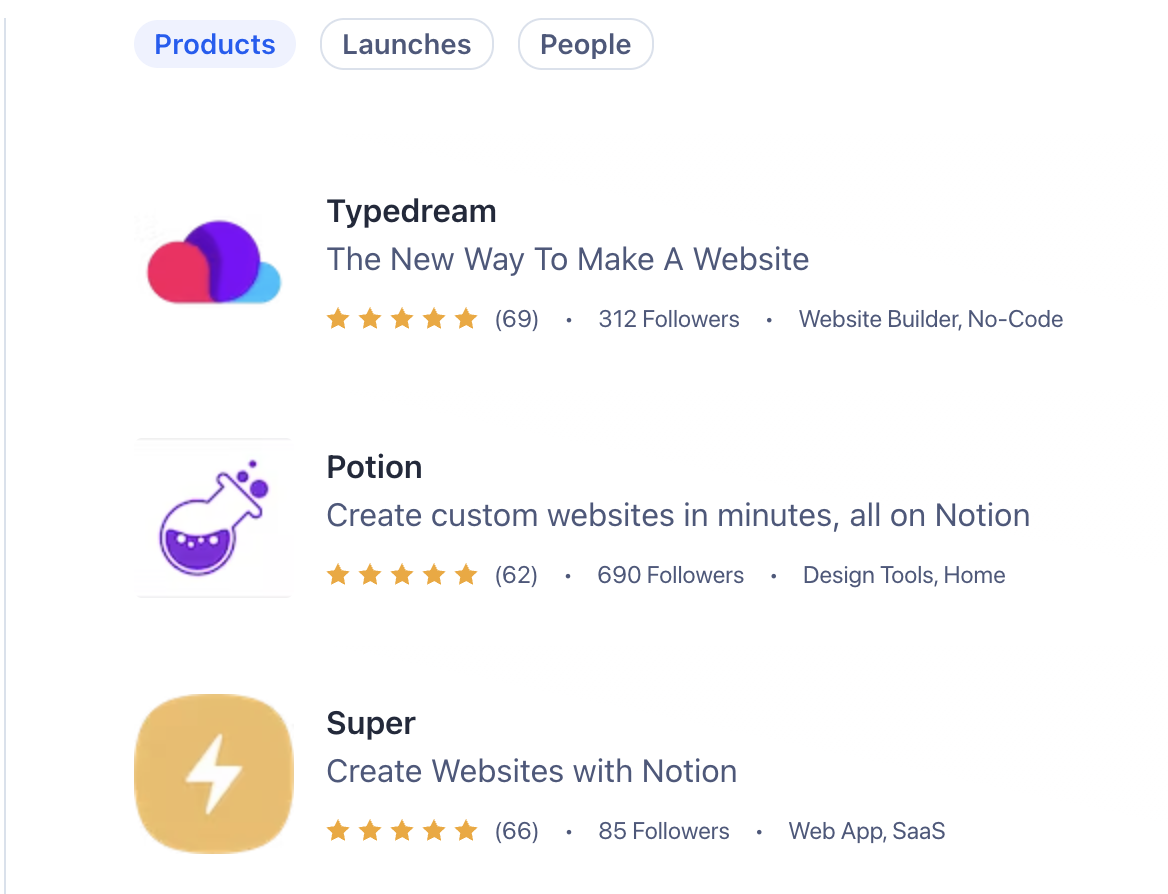
(Top three search results for “notion site builder” on Product Hunt)
Despite the massive following Potion gained through “building in public,” the company’s content strategy was still dependent on Noah. Potion needed a way to leverage its supportive audience to scale beyond just a founder-led go-to-market strategy.
3) Use affiliate programs to convert your followers into product promoters
The benefits of an affiliate program
Affiliate programs are a great way for companies to extend their marketing engine beyond their own capacity. Companies can turn their followers into promoters to create a continuous content strategy that drives traffic and new sales.
The key benefit is leveraging the power of word-of-mouth referrals, which provide both reach and credibility. When partners recommend your product, they are promoting it to their own followers who already see them as a trusted source.
For Potion, an affiliate program was the next step in the company’s growth story.
How Potion turned its followers into product promoters
By installing an affiliate program, Potion encouraged raving fans to promote its product within the Notion community.
As Potion evangelists shared Notion-based resources with their peers, they were incentivized to promote Potion in their content. It was a low-effort, high-impact way Potion could further use its audience base to drive new sales.
Today, Potion has over 50 partners signed up on its affiliate network. Each one produces their own content and distributes it to their own audience base. It’s a win-win approach that lets Potion enthusiasts earn a commission from any sales they bring in, and Potion gains new customers to convert into raving fans.
Recap: How Potion used building in public to get its first 100 paying customers
- Build on top of an existing ecosystem to amplify your product marketing
- Share your company’s progress to attract a supportive audience base
- Use affiliate programs to convert your followers into product promoters
Recommended resources for SaaS founders
At the end of my interview, I asked Noah what resources he recommends to other SaaS founders. Here are his top picks:
Recommended books
- “Atomic Habits” by James Clear
- “Deep Work” by Cal Newport
- “Rework” by Jason Fried
Recommended podcasts
- Build your SaaS (hosted by Jon Buda and Justin Jackson)
- Default Alive (hosted by Chris Spags and Corey Haines)
- Above Board (hosted by Jack and Jordan Gal)
Recommended thought leaders to follow on Twitter
Looking for more SaaS growth stories?
Stay up-to-date with the latest growth stories and curated SaaS content by subscribing to SaaS Weekly. Every Friday, we send you the best articles and case studies to inform your next growth strategy.


